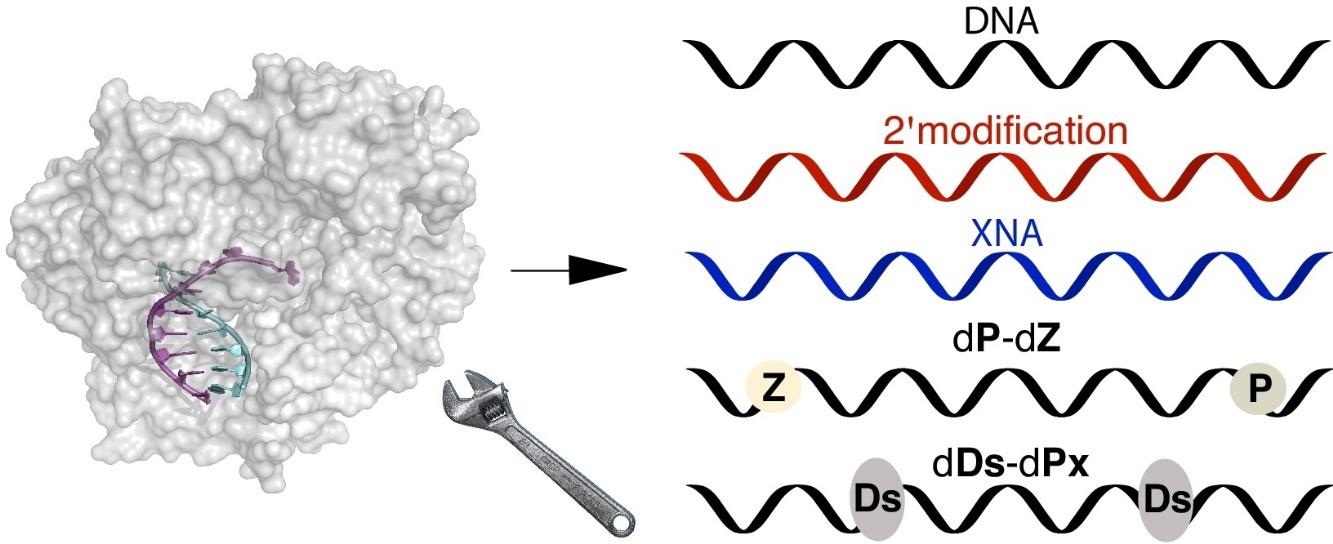
Submitted by Administrator on Wed, 12/07/2017 - 15:27
Cambridge researchers have reviewed recent progress in the enzymatic synthesis of synthetic genetic polymers - their roles in ligand binding and catalysis, and application as building blocks for three-dimensional nanostructures.
Organic chemistry has systematically probed the chemical determinants of function in nucleic acids by building synthetic genetic polymers through manipulating the nucleobase, sugar ring and backbone moieties. Similarly, advances in protein engineering have enabled the discovery of polymerases capable of utilising modified nucleotide analogues.
Together these two lines of investigation in nucleotide chemistry and molecular biology have given rise to a new field of synthetic genetics dedicated to exploring the capacity of these novel, synthetic nucleic acids for the storage and propagation of genetic information, for evolution and for crosstalk, that is, information exchange with the natural genetic system.
Cambridge researchers summarize recent progress in synthetic genetics, with implications for progress in engineering polymerases capable of templated synthesis, reverse transcription and evolution of synthetic genetic polymers. First author Gillian Houlihan says the review highlights, "the recent progress in synthetic genetics that has enabled polymerases to read and write new nucleic acid alphabets. This has opened the door to exciting materials that were otherwise inaccessible. Future work on applications of these novel genetic polymers may have implications ranging from biotechnological tools to therapeutics”.
Read the full paper (open access)
Houlihan, Gillian, Sebastian Arangundy-Franklin, and Philipp Holliger. "Engineering and application of polymerases for synthetic genetics." Current Opinion in Biotechnology 48 (2017): 168-179.

